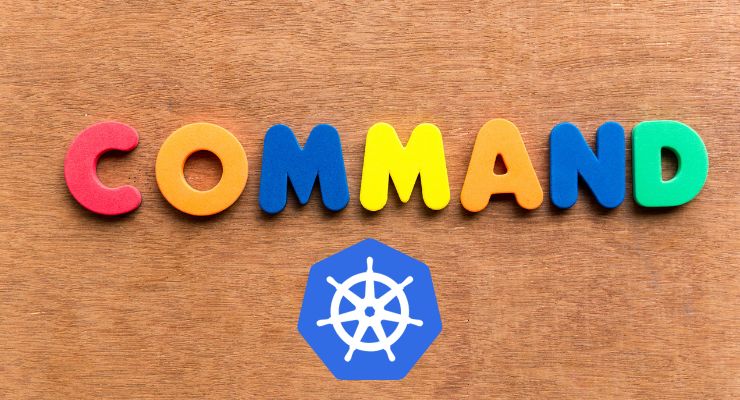When working with Kubernetes, one of the most essential tools at your disposal is kubectl. It’s the command-line interface that allows you to interact with your Kubernetes cluster, whether you’re deploying applications, managing pods, scaling services, or configuring networking. Mastering kubectl commands is key to efficiently managing your Kubernetes environments, and this guide covers the most important commands you’ll need.
Whether you’re just starting out or you’re an experienced Kubernetes user looking to refine your skills, this blog will provide a comprehensive overview of key kubectl commands. From basic operations like creating and deleting pods to more advanced tasks like managing ConfigMaps, secrets, and deployments, we’ll walk you through the essential commands for effective Kubernetes management.
Dive in, and learn how to streamline your Kubernetes workflows with this hands-on guide!
Pods
minikube start
Starts a Minikube cluster
kubectl create deployment my-app --image=my-image
Creates a deployment with the given image
kubectl get pods
Lists all the pods in the cluster
kubectl delete pod my-pod
Deletes a pod with the given name
kubectl logs my-pod
Displays the logs of the given pod
Deployments
kubectl create deployment my-app --image=my-image
Creates a deployment with the given image
kubectl scale deployment my-app --replicas=3
Scales the deployment to have 3 replicas
kubectl set image deployment/my-app my-app=my-image:v2
Updates the deployment to use the new version of the image
Services
kubectl expose deployment my-app --port=80 --target-port=8080
Creates a service for the given deployment on port 80, forwarding traffic to port 8080 of the pods
kubectl get services
Lists all the services in the cluster
kubectl delete service my-service
Deletes the service with the given name
ConfigMaps
kubectl create configmap my-config --from-file=my-config-file
Creates a ConfigMap with the contents of the given file
kubectl get configmaps
Lists all the ConfigMaps in the cluster
kubectl delete configmap my-config
Deletes the ConfigMap with the given name
Roles
kubectl create role my-role --verb=get,list --resource=pods
Creates a role with the given permissions
kubectl get roles
Lists all the roles in the cluster
kubectl delete role my-role
Deletes the role with the given name
Role Bindings
kubectl create rolebinding my-rolebinding --role=my-role --user=my-user
Creates a role binding that binds the given role to the given user
kubectl get rolebindings
Lists all the role bindings in the cluster
kubectl delete rolebinding my-rolebinding
Deletes the role binding with the given name
Network Policies
kubectl create networkpolicy my-networkpolicy --ingress
Creates a network policy that allows ingress traffic
kubectl get networkpolicies
Lists all the network policies in the cluster
kubectl delete networkpolicy my-networkpolicy
Deletes the network policy with the given name
Events
kubectl get events
Lists all the events in the cluster
Namespaces
kubectl create namespace my-namespace
Creates a namespace with the given name
kubectl get namespaces
Lists all the namespaces in the cluster
kubectl delete namespace my-namespace
Deletes the namespace with the given name
Jobs
kubectl create job my-job --image=my-image
Creates a job with the given image
kubectl get jobs
Lists all the jobs in the cluster
kubectl delete job my-job
Deletes the job with the given name
Cron Jobs
kubectl create cronjob my-cronjob --image=my-image --schedule="*/1 * * * *" --restart=OnFailure
Creates a cron job that runs every minute
kubectl get cronjobs
Lists all the cron jobs in the cluster
kubectl delete cronjob my-cronjob
Deletes the cron job with the given name
Daemon Sets
kubectl create daemonset my-daemonset --image=my-image
Creates a daemon set with the given image
kubectl get daemonsets
Lists all the daemon sets in the cluster
kubectl delete daemonset my-daemonset
Deletes the daemon set with the given name
Replica Sets
kubectl create replicaset my-replicaset --image=my-image
Creates a replica set with the given image
kubectl get replicasets
Lists all the replica sets in the cluster
kubectl delete replicaset my-replicaset
Deletes the replica set with the given name
Ingress
kubectl create ingress my-ingress --rule=my-rule
Creates an ingress with the given rule
kubectl get ingresses
Lists all the ingresses in the cluster
kubectl delete ingress my-ingress
Deletes the ingress with the given name
Endpoints
kubectl get endpoints
Lists all the endpoints in the cluster
Horizontal Pod Autoscalers
kubectl create hpa my-hpa --cpu-percent=80 --min=2 --max=10
Creates a horizontal pod autoscaler with the given CPU utilization percentage, minimum and maximum number of replicas
kubectl get hpa
Lists all the horizontal pod autoscalers in the cluster
kubectl delete hpa my-hpa
Deletes the horizontal pod autoscaler with the given name
Pod Templates
kubectl create podtemplate my-podtemplate --image=my-image
Creates a pod template with the given image
kubectl get podtemplates
Lists all the pod templates in the cluster
kubectl delete podtemplate my-podtemplate
Deletes the pod template with the given name
Service Accounts
kubectl create serviceaccount my-serviceaccount
Creates a service account with the given name
kubectl get serviceaccounts
Lists all the service accounts in the cluster
kubectl delete serviceaccount my-serviceaccount
Deletes the service account with the given name
Volume Snapshots
kubectl create volumesnapshot my-volumesnapshot --snapshotter=my-snapshotter --source=pvc/my-pvc
Creates a volume snapshot with the given snapshotter and source
kubectl get volumesnapshots
Lists all the volume snapshots in the cluster
kubectl delete volumesnapshot my-volumesnapshot
Deletes the volume snapshot with the given name
Volume Snapshot Classes
kubectl create volumesnapshotclass my-volumesnapshotclass --driver=my-driver
Creates a volume snapshot class with the given driver
kubectl get volumesnapshotclasses
Lists all the volume snapshot classes in the cluster
kubectl delete volumesnapshotclass my-volumesnapshotclass
Deletes the volume snapshot class with the given name
Volume Attachments
kubectl create volumeattachment my-volumeattachment --source=my-node --target=my-pv
Creates a volume attachment with the given node and PV
kubectl get volumeattachments
Lists all the volume attachments in the cluster
kubectl delete volumeattachment my-volumeattachment
Deletes the volume attachment with the given name
CSI Drivers
kubectl create csidriver my-csidriver --nodepluginpath=/path/to/node/plugin --controllerpluginpath=/path/to/controller/plugin
Creates a CSI driver with the given node and controller plugin paths
kubectl get csidrivers
Lists all the CSI drivers in the cluster
kubectl delete csidriver my-csidriver
Deletes the CSI driver with the given name
Certificate Signing Requests
kubectl create csr my-csr --cert=my-cert --key=my-key
Creates a certificate signing request with the given cert and key
kubectl get csr
Lists all the certificate signing requests in the cluster
kubectl delete csr my-csr
Deletes the certificate signing request with the given name
Custom Resource Definitions (CRDs)
kubectl create crd my-crd --kind=my-kind --api-version=my-version
Creates a custom resource definition with the given kind and API version
kubectl get crd
Lists all the custom resource definitions in the cluster
kubectl delete crd my-crd
Deletes the custom resource definition with the given name
Pod Disruption Budgets (PDBs)
kubectl create pdb my-pdb --selector=my-selector --min-available=my-min-available
Creates a pod disruption budget with the given selector and minimum available count
kubectl get pdb
Lists all the pod disruption budgets in the cluster
kubectl delete pdb my-pdb
Deletes the pod disruption budget with the given name
Stateful Sets
kubectl create statefulset my-statefulset --image=my-image --replicas=3
Creates a stateful set with the given image and number of replicas
kubectl get statefulsets
Lists all the stateful sets in the cluster
kubectl scale statefulset my-statefulset --replicas=5
Scales up or down the number of replicas for the given stateful set
Network Policies
kubectl create networkpolicy my-networkpolicy --ingress-from=my-namespace
Creates a network policy with the given ingress rule from a namespace
kubectl get networkpolicies
Lists all the network policies in the cluster
kubectl delete networkpolicy my-networkpolicy
Deletes the network policy with the given name
Pod Presets
kubectl create podpreset my-podpreset --env=MY_ENV=my-value
Creates a pod preset with the given environment variable
kubectl get podpresets
Lists all the pod presets in the cluster
kubectl delete podpreset my-podpreset
Deletes the pod preset with the given name
Mutating and Validating Webhooks
kubectl create validatingwebhook my-validatingwebhook --namespace=my-namespace --image=my-image
Creates a validating webhook with the given namespace and image
kubectl get validatingwebhooks
Lists all the validating webhooks in the cluster
kubectl delete validatingwebhook my-validatingwebhook
Deletes the validating webhook with the given name
kubectl create mutatingwebhook my-mutatingwebhook --namespace=my-namespace --image=my-image
Creates a mutating webhook with the given namespace and image
kubectl get mutatingwebhooks
Lists all the mutating webhooks in the cluster
kubectl delete mutatingwebhook my-mutatingwebhook
Deletes the mutating webhook with the given name
Secrets
kubectl create secret generic my-secret --from-literal=MY_SECRET=my-value
Creates a generic secret with the given data
kubectl get secrets
Lists all the secrets in the cluster
kubectl delete secret my-secret
Deletes the secret with the given name
Persistent Volumes (PVs)
kubectl create pv my-pv --capacity=1Gi --access-modes=ReadWriteOnce --hostPath=/data
Creates a persistent volume with the given capacity, access modes and host path
kubectl get pv
Lists all the persistent volumes in the cluster
kubectl delete pv my-pv
Deletes the persistent volume with the given name
Persistent Volume Claims (PVCs)
kubectl create pvc my-pvc --capacity=1Gi --access-modes=ReadWriteOnce --storageClassName=standard
Creates a persistent volume claim with the given capacity, access modes and storage class name
kubectl get pvc
Lists all the persistent volume claims in the cluster
kubectl delete pvc my-pvc
Deletes the persistent volume claim with the given name
Resource Quotas
kubectl create quota my-quota --hard=pods=10,services=10
Creates a resource quota with the given limits on the number of pods and services
kubectl get quota
Lists all the resource quotas in the cluster
kubectl delete quota my-quota
Deletes the resource quota with the given name









